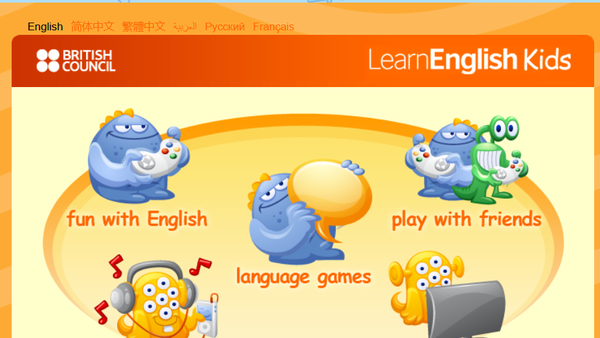OLE Nepal recently signed an agreement with the British Council to host 'Learn English Kids (LE Kids)’ interactive software in the E-Pustakalaya. LE Kids teaches fundamentals of the English language to children and adults through the use of audio-visual effects and flash animations. In this regard, it is similar to OLE Nepal’s E-Paath activities, but the scope of LE Kids is not qualified to any curriculum. The partnership has expanded the reach of LE Kids to nearly 3,400 students in 34 schools spread across ten districts in Nepal where OLE Nepal has implemented ICT-integrated classes using the OLPC model. By integrating the LE Kids in the digital library hosted in local servers, schools no longer require Internet connectivity to benefit from these activities. OLE Nepal has always emphasized the need for quality learning materials like LE Kids in order to realize a meaningful impact on children's learning through computers. By making these activities freely available to everyone, the British Council has done a great service to students and learners who otherwise would have been deprived of this great tool to improve their English language skills.
LE Kids provides its users with a multitude of options such as solving puzzles, painting, reading, playing games, and listening to songs. All of these choices enable people to learn day-to-day English. This can be something as simple as knowing English terms for food items sold at shopping centers or teaching comprehension skills with its various read-and-solve quizzes.

LE Kids also contains two-person general knowledge quizzes. These quizzes allow healthy competition among children, teach children (and adults) interesting facts about our changing world, and also enable and encourage kids to share their computers. This will be very useful for students in rural schools where even with the generous numbers of XO laptops provided by OLE Nepal, there is a need to share. Some of the quiz questions also explain why an answer is incorrect. For example, a question regarding the largest lake in the world has as an incorrect option the deepest lake in the world, Lake Baikal. Thus, even while answering incorrectly, children can learn a new fact as well as understand that there are differences between similar concept words such as ‘large’ and ‘deep’.
My favorite section in LE Kids is the Short Story section. The user has fifty-two stories to choose from. Apart from being able to read along with the stories, some of them are also interactive. The ‘Spycat’ story, for example, allows the children to solve the clues that Spycat discovers. This technique allows children to remain engaged with the story and not lose focus.
We can say with certainty that both students and teachers will greatly benefit from LE Kids activities, as content to build English language skills is scarce. One can access LE Kids from the E-Pustakalaya homepage. It is conveniently located in the upper-right-hand panel of the homepage under the title ‘अंग्रेजी भाषा सिकौं’ (‘Learn English Kids’ in our English interface). Anyone who has tried LE Kids will find it fun and appealing to the intellect.